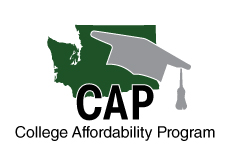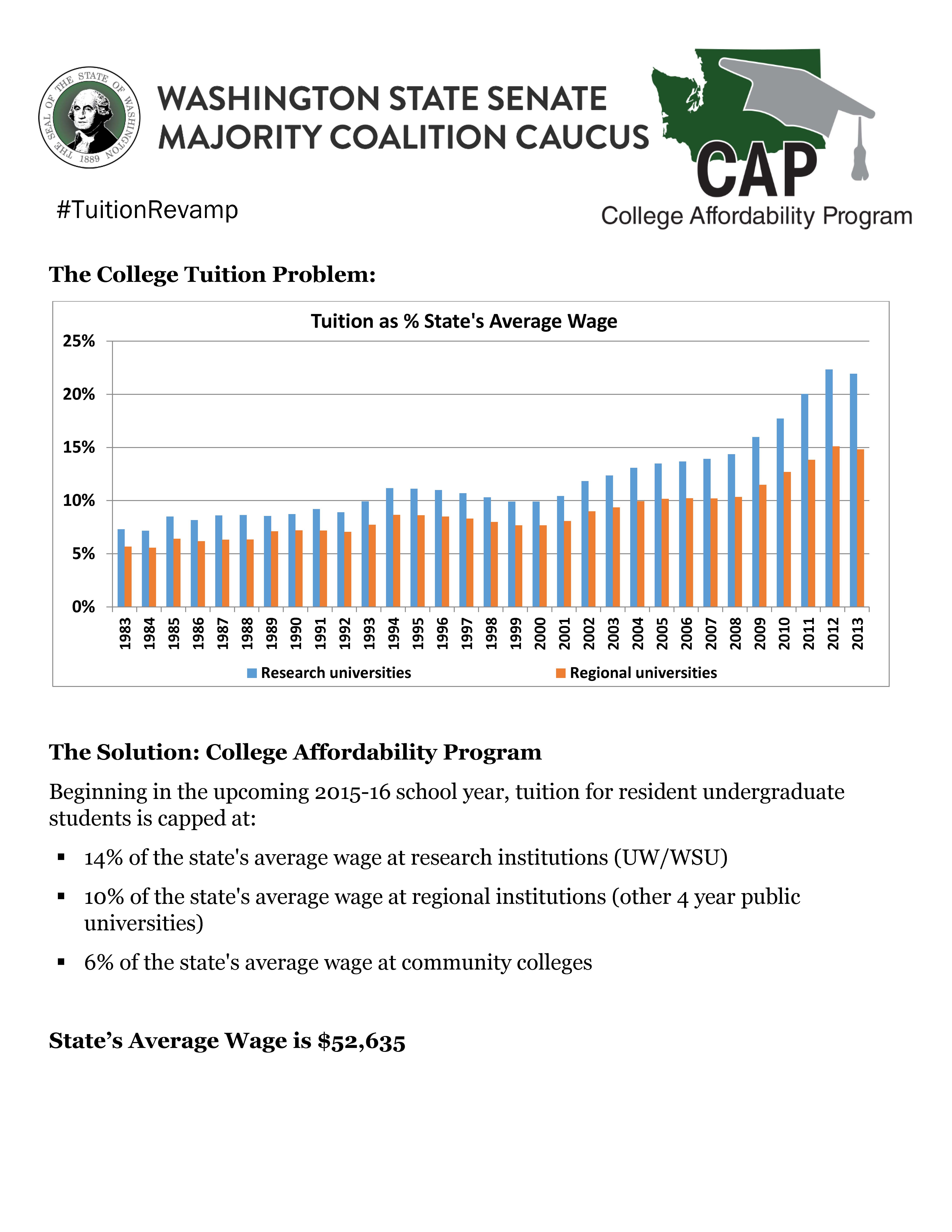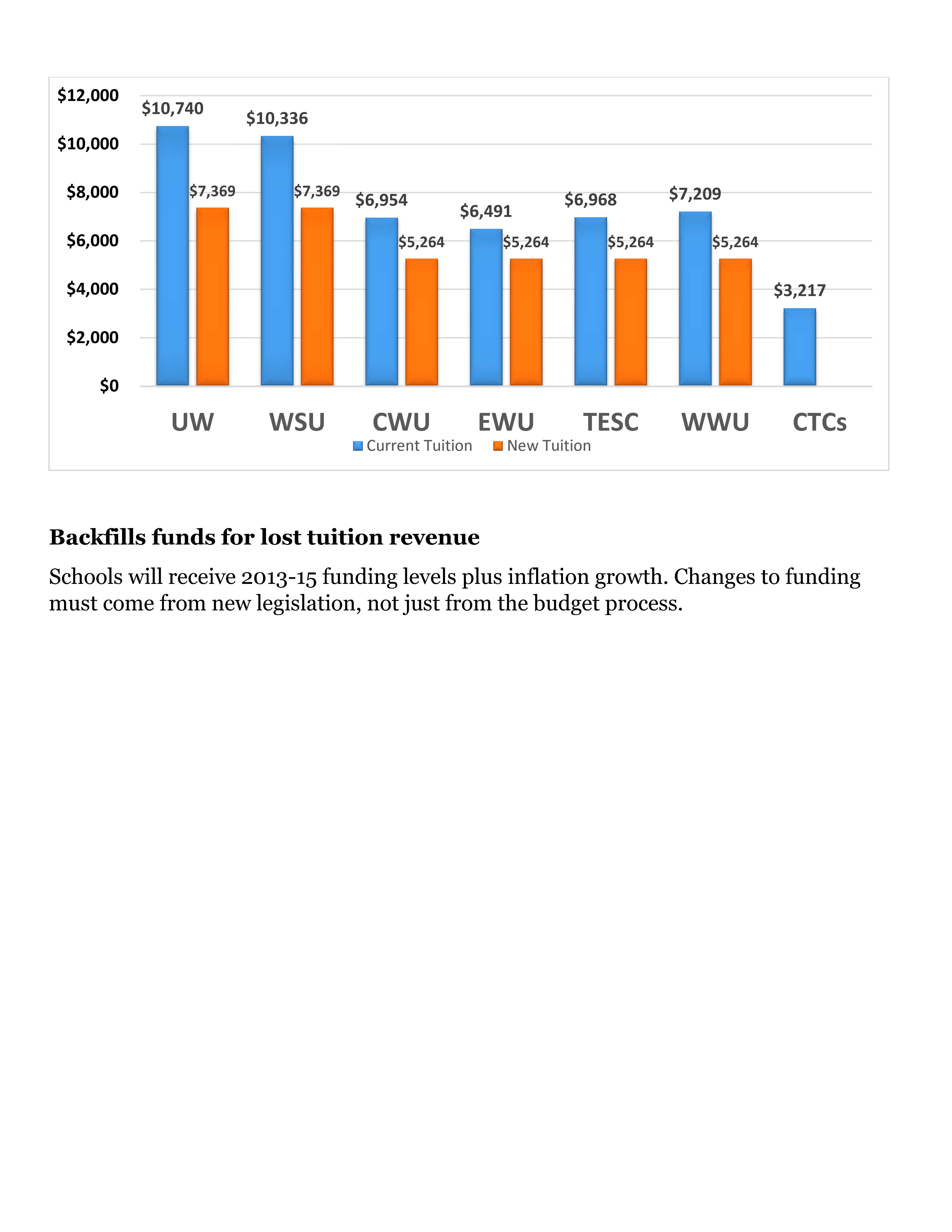Author Archives: Laudan
OLYMPIA… Students will join chair of the Senate Higher Education Committee, Sen. Barbara Bailey and Deputy Majority Leader, Sen. John Braun to unveil a new plan for higher education affordability in a news conference Thursday, Feb. 12.
Date: Thursday, Feb. 12 at 12:45 p.m.
Locations: Senate Hearing Room 2, John A. Cherberg Bldg.
Sen. John Braun’s legislation, Senate Bill 5329 that would require public employees’ union negotiations to be open to the public received a hearing in the Senate Commerce and Labor Committee Monday.
“It is important to have transparency and openness in government,” Braun, R- Centralia, said. “We’ve recently seen private negotiations between the governor’s office and public unions that resulted in over a half a billion dollar obligation for the taxpayers. The public deserves visibility on these negotiations.”
The Open Public Meetings Act requires that all meetings of governing bodies of public agencies, be open and accessible to the public, however, public employee collective bargaining is exempt from compliance.A meeting is generally defined as any situation where a majority of members from a governing body meet and discuss the business of that body. Braun’s proposed legislation would remove the current exemption from the act and require collective bargaining meetings to be open.
“Bargaining should not be done in secret,” Braun said. “Eliminating this exemption is a reasonable step toward increasing transparency in government and ensuring a balance between the interests of our state employees and those that pay the salaries.”
Taxpayers in Washington can face a lengthy and challenging process when disputing a tax assessment. To create a more open and fair process Sen. John Braun, R-Centralia, introduced Senate Bill 5449 which would create a statewide elected Tax Appeals Division of the appeals court and eliminate the executive agency comprised of political appointees that currently hears tax appeals. The bill has bipartisan support and has already received a public hearing in the Senate before a joint meeting of the Trade and Economic Development and Law & Justice Committees.
“This bill is about fairness in the tax system,” Braun said. “The Council on State Taxation gives our state a ‘C’ grade for the appeals process. Washington is behind many other states in modernizing its tax appeals process. We need to streamline our process and create a fair and level playing field between the taxpayer and tax collector.”
Washington has a complex tax-appeals system that requires filing with different agencies depending on the type of tax. It also requires taxpayers to pay all taxes, fines, penalties and interest before seeking relief from a court.
“This legislation would not only improve the appeals process but also enhance our state’s business climate and reputation as a good place to do business. This bill sets high standards for those who will be reviewing these cases, lowers standards of evidence and has fewer steps for appellants. The result is a more transparent, simple and fair process that helps property owners and small businesses.” Braun said.
The current tax appeal agency, the Board of Tax Appeals, is comprised of gubernatorial appointees that may or may not have expertise in tax law. Under Braun’s proposed legislation, the Tax Appeal Division would consist of elected judges from each of the three divisions of the Court of Appeals. The new court would hear cases involving excise taxes, property taxes, estate taxes, and adverse rulings from a taxing authority.

January 14, 2015 |
||
|
||
Having trouble viewing this email? View it as a Web page. |

January 12, 2015 |
||
|
||
Having trouble viewing this email? View it as a Web page. |
 More than 50 members of the 20th Legislative District’s Latino community joined Sen. John Braun on Sunday afternoon in Chehalis for a discussion about priorities for the upcoming legislative session, which begins Jan. 12.
More than 50 members of the 20th Legislative District’s Latino community joined Sen. John Braun on Sunday afternoon in Chehalis for a discussion about priorities for the upcoming legislative session, which begins Jan. 12.
“I was pleasantly surprised by the turnout,” said Braun, R-Centralia, who had invited members of the area’s faith community and leaders from the broader Latino community. “I’m glad that people took time to voice their concerns and help me understand the issues facing the community. I’m looking forward to reviewing the issues that were raised and finding constructive solutions.”
Braun’s goal for the forum, held at St. Joseph Catholic Church, was to better engage and address concerns in the Latino community. Participants spoke at length about issues ranging from school quality, business regulations, access to affordable health care and parental involvement in schools.
“I see a great deal of alignment with some of my legislative priorities for the coming session,” Braun said. “Having parents more involved in their children’s education, fostering entrepreneurship and having quality educational opportunities are values we all share. The issues that we discussed at this event are important for people across the state, not just one community. I will be working hard this coming session to prioritize our state’s spending that reflects these shared commitments to improving education and our state’s business climate.”
The community forum was Braun’s first; he hopes the positive results will encourage other legislators to connect with diverse communities around the state. His goal is to build consensus and broader understanding of how issues cross language, cultural and district boundaries.
The Senate Majority Coalition Caucus has elected Sen. John Braun, R-Centralia, as Senate Majority Deputy Leader for the two-year legislative term that begins in 2015. Braun was already a member of the MCC leadership team and is chair of the Senate Trade and Economic Development Committee.
“We will have a tough job this coming legislative session and it will be important to effectively communicate to colleagues and stakeholders the best direction for our state,” said Braun. “I’m looking forward to engaging people in healthy debate on the issues and finding constructive solutions to the challenges ahead.”
In his new, larger role Braun will assist the caucus leader in communicating the caucus’s legislative goals, policies, issues and priorities.















